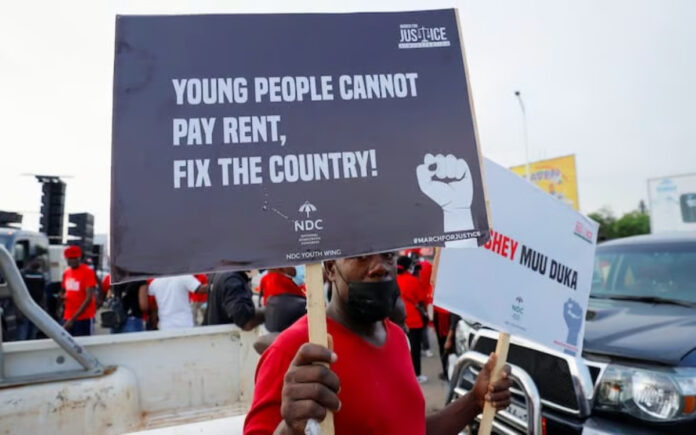Accra: A high court in Ghana has prohibited civil society groups from staging protests in the capital, Accra, according to one of the organizers. This move aligns with a broader trend among African governments to curb youth-led demonstrations over rising living costs.
Organizers had planned to mobilize over two million people to demand increased action from President Nana Akufo-Addo on corruption, living conditions, and delays in enacting an anti-LGBT bill. However, the court, led by Justice Abena Afia Serwaa, approved a request from Ghana’s police to ban the protests scheduled between July 31 and August 6. The police cited insufficient personnel for maintaining security, as officers are currently assigned to political rallies amid election campaigning.
Recent weeks have seen a surge of youth-led protests across Africa. In Kenya, over 50 people have been killed and nearly 700 arrested during a police crackdown on demonstrations against proposed tax increases by President William Ruto. The government-funded Kenya National Commission on Human Rights (KNCHR) reported these figures. Ruto has since dismissed his cabinet and canceled the tax bill.
In Uganda, protesters took to the streets last week to denounce alleged corruption and demand the resignation of the parliament speaker. Police quelled the march and arrested more than 70 individuals, according to a legal aid organization.
In Nigeria, the government has offered jobs and substantial grants to its youth to deter protests scheduled to address poor governance and high living costs. This incentive came just days before a planned nationwide demonstration.
Also Read | US Oil and Gas Basins Emit Four Times More Methane Than Expected, New Study Finds
In Ghana, protest organizer Mensah Thompson criticized the court’s decision, asserting that elections should not impede citizens’ rights to protest. “Young people are poised to demonstrate with or without the approval of the authorities,” Thompson said. “A time comes when they will spontaneously jump on the streets, and we will have a ‘Kenya’ on our hands.”
Also Read | Boeing Names Kelly Ortberg as CEO Amid Ongoing Challenges
Ghana’s economy has struggled under the strain of extensive borrowing, worsened by the COVID-19 pandemic, the war in Ukraine, and rising global interest rates. The country, a major producer of gold, cocoa, and oil, is restructuring its $30 billion external debt to facilitate a $3 billion, three-year International Monetary Fund bailout and recover from its worst economic crisis in a generation. Ghanaians are set to vote in December to elect new legislators and a successor to President Akufo-Addo in what is expected to be a highly contested election.



